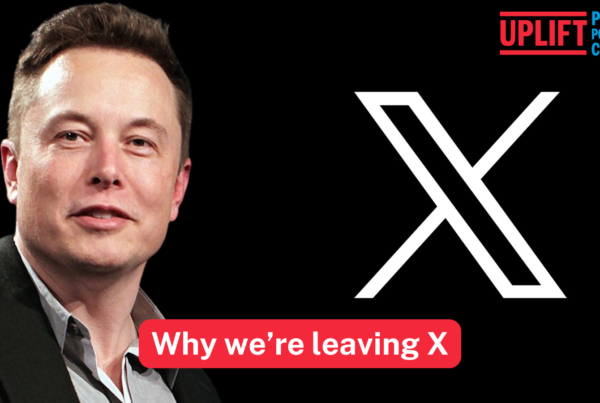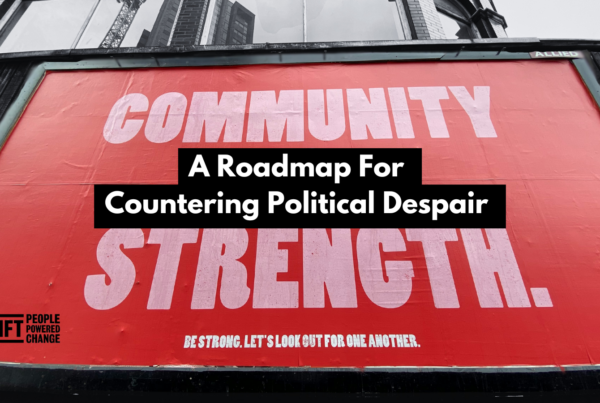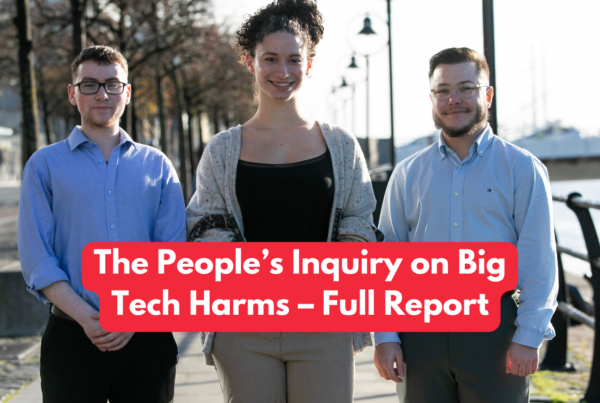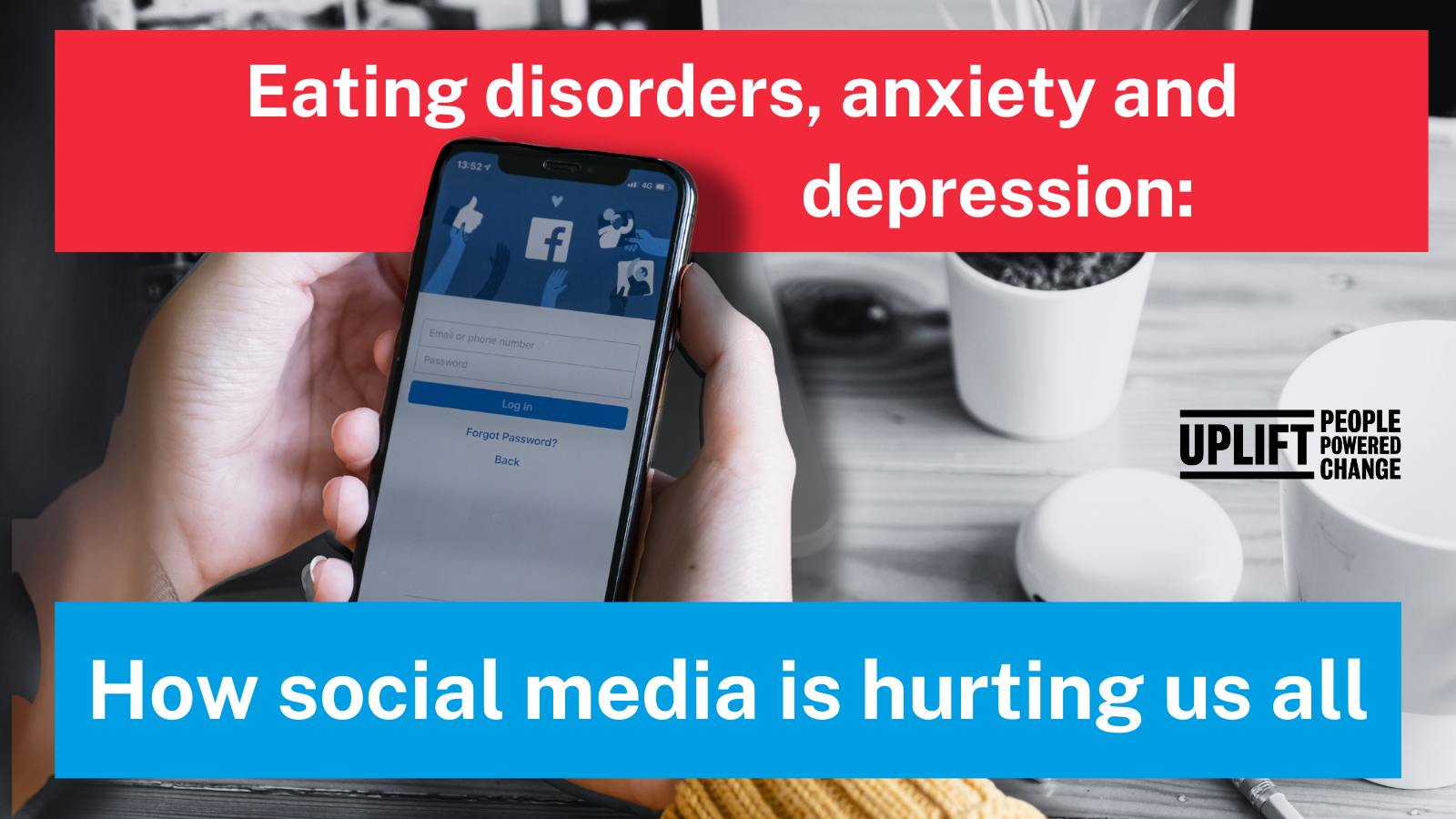
We all want online spaces that are safe and where we can connect with others — but right now, social media bosses like Mark Zuckerberg and Elon Musk are hurting us and pushing content at us that we don’t want to see.
The Uplift community has spent years fighting for a better internet — one that isn’t ruled by unregulated big tech companies — and in January, we decided to find out more about how our members lives are being affected by social media.
More than 1,000 of us have shared heartbreaking stories about the impact hateful content, toxic algorithms and invasive advertising are having on us — and the results are staggering.
Here are just some of the responses we received:
“A friend didn’t believe that Covid was real and believed that the vaccine would kill people after reading information on Facebook.”
“My sister was led to believe Covid was only a bad cold, that vaccination was harmful, and that human-caused climate change is not real. This was after some years of frequent social media use.”
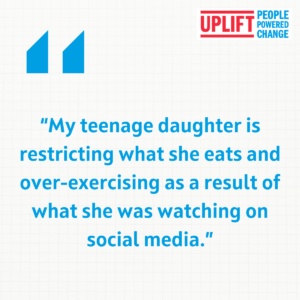
“My beautiful, intelligent, accomplished niece was encouraged, incited to see suicide as a romantic way to end her life. She did end it. Earlier she had been encouraged to see more and more sites by people who espoused the idea that people suffering from mental health issues should stop their medications and force society to accept them as they were. This led her into a dangerous downturn from which she never recovered…”
“Elderly mother getting targeted with bogus weight loss posts, leading to her being scammed out of money trying to buy weight loss pills.”
“A daughter suffering with anxiety from the content pushing her towards anorexia.”
“I am the mother of a teenage daughter and I am very aware of the targeted videos and content that she gets in relation to self harm, eating disorders and misinformation relating to hate speech.”
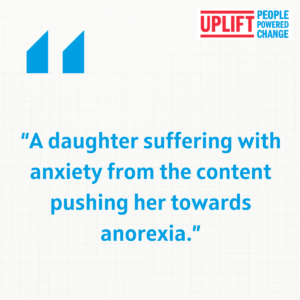
“My teenage daughter struggled with her weight and body image. She used TikTok to look up weight loss influencers and came across so many anorexic girls, giving tips on how to lose more weight and avoid being found out.”
“My teenage daughter is restricting what she eats and over-exercising as a result of what she was watching on social media.”
“My best friend no longer thinks that Ireland should welcome any asylum seekers because of the content he sees. A tolerant, generous person has been turned into a xenophobic person unwilling to show any empathy towards non-Irish people. This is heavily influenced by his online activities.”
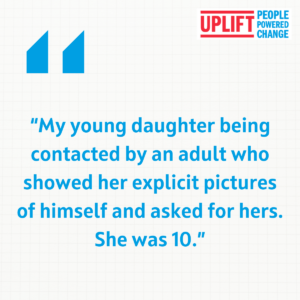
“I struggled with an eating disorder for the last 6 years, I am doing much better now but still see my day to day life affected by it. The worst lows were while I was finishing secondary school, as a vulnerable teenager sucked into social media. There is absolutely no doubt for me, nor the team that helped me overcome anorexia, that this illness was fueled and in a way triggered by the content I was being recommended on platforms such as Instagram and TikTok.”
“My young daughter being contacted by an adult who showed her explicit pictures of himself and asked for hers. She was 10.”
We all deserve a safe and secure internet
Whether it’s sharing a painful diagnosis with family or confiding to a close friend that money’s tight, what we share with others is deeply personal. But today, our leaders are allowing social media companies to capture our most personal data, censor what we see online, and decide what we’re sold and how we’re treated based on the colour of our skin, the shape of our face, or the places we’ve been.
The Uplift community is a powerful one, and we’re coming together to demand that our elected leaders set and enforce strong rules for big tech corporations so we and our loved ones can access better, safer online spaces.
Next up, we’ll be staging a massive People’s Inquiry on Digital Harms. Uplift members will come together with journalists and politicians to share their own stories of the harms they’ve suffered as a result of toxic algorithms. Together, we’ll put together a set of recommendations that would make us all feel safer online.
We’ll be focusing on:
- Making sure people have the option to turn off toxic algorithms: We all deserve the chance to make decisions about the kind of content we see online, but right now, we’re being deprived of that choice. Today, most social media companies have “recommender systems” which decide what we see based on who we are. The Uplift community is already fighting to make sure we have the choice to turn off these algorithms so we can choose what we do and don’t see online, and we’re going to make sure to keep the pressure on to make sure decision-makers are listening to us.
- End surveillance for profit: Social media companies have tricked us into “consenting” to widespread surveillance, so they can make money off who we are, what our interests are, and where we live. We never asked for this — together, we’re fighting to put an end to surveillance advertising and for full transparency about the kind of ads we see online.
- Turn off the hate megaphone: Our feeds are being flooded with toxic hate speech as well as harmful lies and misinformation. We’re fighting for a social media model that deplatforms this kind of content instead of the current system, which amplifies hate because it keeps people engaged. We want a social media model that isn’t based on addicting people, but is instead based on shared connections, access to information, and healthy discussion.
If you’d like to take part in our People’s Inquiry on Digital Harms, email Patrick Kelleher at [email protected] to find out more.
